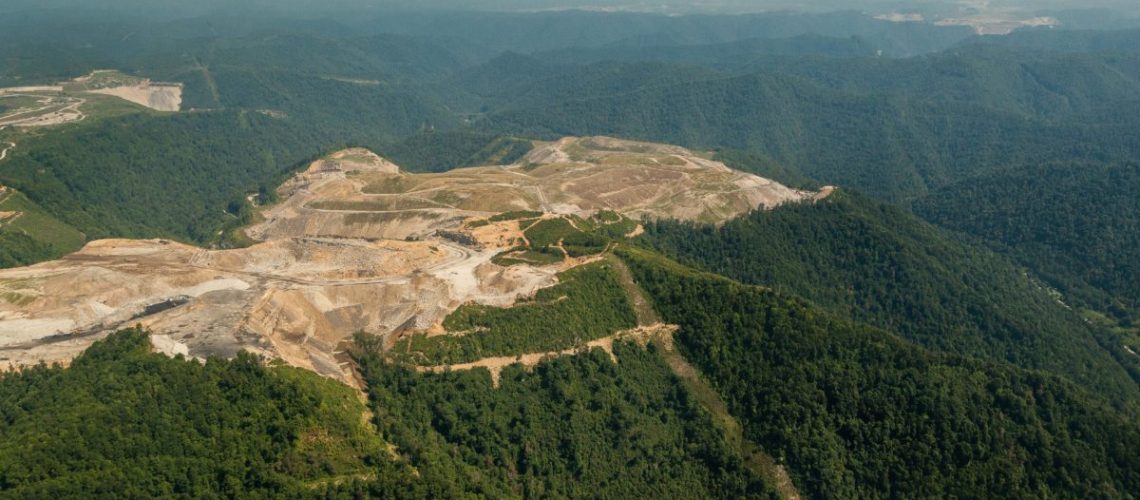In the United States, passage of the Build Back Better Act would extend
the solar Investment Tax Credit and offer other clean energy initiatives
that would boost the renewable energy momentum already underway in Senator Joe Manchin’s home state of West Virginia. This is good news for the state and is resulting in unlikely allies.
When West Virginian Senator Joe Manchin stated that he could not support the current administration’s proposed Build Back Better Act (BBB), an economic and climate bill that required his support for it to pass in the Senate, it sent shock waves through the US Capitol building. The impact reverberated from the stock market all the way to the coal mining territory of West Virginia, Manchin’s home state and the second-largest coal producer in the nation.
The Biden administration is currently working on a revision to the proposed legislation, but the original BBB had environmental support for utility-scale and residential clean energy, transmission and storage, clean passenger and commercial vehicles, clean energy manufacturing, technology development, and more.
These investments would help transition the United States to clean energy while smoothing supply chain issues, promoting American industries such as steel manufacturing, and generating jobs for Americans.
The potential of the BBB is felt in southern states hardest hit by the downturn in the US coal industry, and the bill is supported by the United Mine Workers of America (UMWA). Mine workers are in favor of this legislation because it has items that will support its members and communities including extending the current fee paid by coal companies to coal miners who suffer from black lung disease. BBB also has language that supports the UMWA’s principles for a true energy transition, which they believe will enhance opportunities for miners, their families, and their communities.
Downward spiral
At the end of 2011, nearly 92,000 people were employed in the American coal industry. US coal production topped a billion tons for the 21st consecutive year; thermal and metallurgical coal were selling at premium prices, and companies were making record profits.
Everything changed when the economy slowed, foreign competition increased, and fracking increased production of natural gas – making it a low-cost fuel preferred by utilities.
The impact of these economic factors on coal production were exacerbated by new environmental regulations. The result was that by 2016, 51,800 people were employed in the coal industry. Since 2012, more than 60 coal companieshave filed for bankruptcy or liquidation. In 2020, the Covid-19 pandemic delivered another shock, with a further 7,000 jobs being shed by the coal industry that year.
In comes solar
The Environmental Protection Agency has long recommended that Superfund sites, such as abandoned mines, are appropriate for renewable-energy projects. Investing in renewable energy can lead to strengthening and diversifying West Virginia’s economy, according to the report West Virginia’s Energy Future, issued by the Center for Energy and Sustainable Development at the West Virginia University College of Law. The report concludes that continued dependence on coal has many downsides economically, environmentally, and from a health standpoint, while a move to renewables has many benefits, just a few of which include job creation, a diversified economy, and health.

The Nature Conservancy (TNC), a global environmental organization headquartered in Arlington, Virginia, sees West Virginia as a prime location for future solar development. Currently West Virginia is ranked No. 48 in the country for solar energy generation and receives
only 0.03% of its electricity from the sun, according to the Solar Energy Industries Association. “As the world transitions to a low-carbon future, solar energy is an important opportunity for West Virginia
to continue serving as a domestic energy powerhouse,” Eriks Brolis, the director of TNC in West Virginia’s Nature and Economy Programs, told pv magazine.
TNC’s West Virginia team has been working for the last few years to promote economic diversification through conservation-compatible solar energy in this historically coal dominated state. TNC developed a Roadmap for Solar on Mine Lands in conjunction with Downstream Strategies and the West Virginia University College of Law’s Center for Energy and Sustainable Development.
According to the Roadmap, there are up to 400,000 acres of former mine lands and other brownfields that could be suitable for large-scale solar across central Appalachia. If this land area were harnessed for
solar development, it could double the total solar capacity installed in the US to date, according to the 2019 report. “Prioritizing solar siting on former coal mines, brownfields as well as rooftops around the state would help bolster the economy and steer energy development away from lands important for clean water, wildlife, and other important economic sectors such as forestry and nature-based tourism and recreation,” Brolis said.
Coal ambitions
TNC and Dominion Energy Virginia announced in 2021 a plan to convert roughly 1,200 acres of the former Red Onion surface coal mine and surrounding properties into the 50MW Highlands Solar Project. Another project under development in coal country is the 200MW Martin County Solar Project. It is being constructed on 1,200 acres of the former Martiki coal mine site in Martin County, near the Kentucky-West Virginia border. Renewable energy momentum is already picking up in coal-mining areas of the country, including Manchin’s home state of West Virginia United Mine Workers of America International President Cecil E. Roberts said that the union urges Senator Manchin to “revisit his opposition to this legislation and work with his colleagues to pass something that will help keep coal miners working.”



